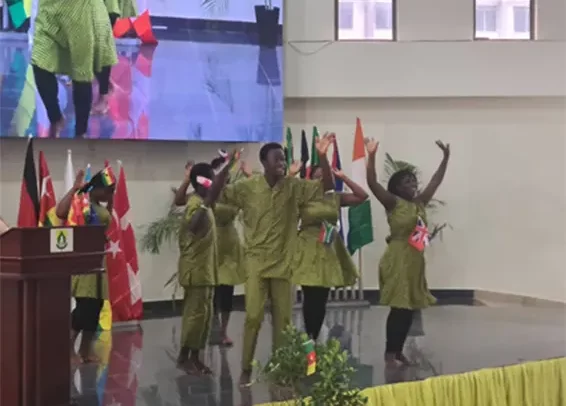A scene during the event
The University of Health and Allied Sciences (UHAS) has reaffirmed its unwavering commitment to promoting diversity, inclusion as it celebrated the 3rd edition of its International Day.
The event, which brought together a diverse community of international faculty, students, and partners, was held under the theme “Bridging the Gap: Internationalisation and Equity in Higher Education.”
The Vice Chancellor of University of Health and Allied Sciences, Prof. Lydia Aziato, emphasised that the university’s identity is rooted in fostering an inclusive environment that values multiculturalism and global collaboration.
“The promotion of international relations forms part of our core strategies towards an identity of diversity and inclusion. We are creating a working environment for people from different backgrounds, cultures, and perspectives, because we believe it makes the university a better place,” he said.
Prof. Aziato stated that UHAS currently has over 70 active international partnerships.
The Vice Chancellor also highlighted the role of international faculty, especially from Cuba, Nigeria and Cameroon whose contributions have been instrumental to the growth of the young university since its establishment.
“UHAS could not have come this far without our international partners, particularly our faculty. As Vice Chancellor, I deeply appreciate your commitment, dedication, and the sacrifices you continue to make,” he said.
Dean of the Office of International Programmes, Prof. Elvis E. Tarkang, reiterated the significance of UHAS International Day as a platform to celebrate cultural diversity and global collaboration.
He described UHAS as a rising giant in health education that embraces global talent and partnerships to enrich its academic community.
The International Day featured a rich display of cultures, with performances, traditional wear, and cuisine from countries including Cuba, India, China, Nigeria, and Cameroon.
By Daniel K Orlando, Ho


